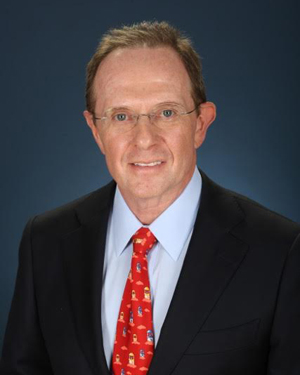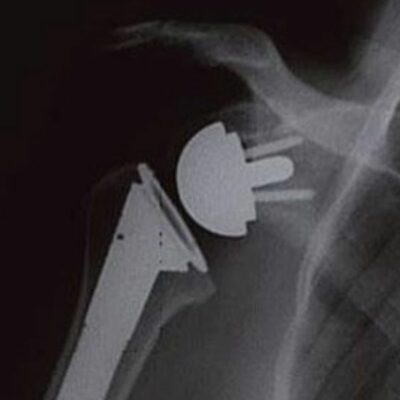Shoulder Surgeon

Are you suffering from severe shoulder arthritis? If so, you may be a candidate for a reverse shoulder replacement. Reverse shoulder replacement may be recommended in patients who have developed a complex type of shoulder arthritis called “rotator cuff tear arthropathy.” The shoulder surgeon, Dr. James Mazzara provides diagnosis and both surgical and nonsurgical treatment options for patients in the Manchester, South Windsor, Enfield, Glastonbury and surrounding Hartford communities area who have developed severe shoulder arthritis. Contact Dr. Mazzara’s team today!
What is Reverse Total Shoulder Replacement?
Conventional shoulder replacement mimics the normal anatomy of the shoulder by using a plastic “cup” and metal “ball.” The cup is fitted into the shoulder socket (glenoid) and the ball is attached to the upper arm bone (humerus.) In a reverse total shoulder replacement, the socket and metal ball are switched. The metal ball is fixed to the socket, on the other side of the glenoid, and the plastic cup is fixed to the upper end of the humerus. Dr. James Mazzara, shoulder surgeon, has performed reverse total shoulder replacement for patients in Manchester, South Windsor, Enfield, Glastonbury and surrounding Hartford communities with a record of excellent outcomes.
Why would I need reverse total shoulder replacement?
Every year Dr. Mazzara successfully performs conventional total shoulder replacement surgery for patients with shoulder arthritis or other conditions. With a traditional shoulder replacement, the rotator cuff muscle helps to position the arm and give it power during movement. However, if the patient has a torn or damaged rotator cuff, traditional shoulder replacement will not work and may result in pain with limited motion. Patients who have a large rotator cuff tear, or failed previous rotator cuff repair, may develop a complex type of shoulder arthritis called “cuff tear arthropathy.” For these patients, reverse total shoulder replacement is a better treatment option.
Who should have a reverse total shoulder replacement?
Reverse total shoulder replacement may be recommended for the following:
- Cuff tear arthropathy
- A completely torn rotator cuff that cannot be repaired
- A previous total shoulder replacement that has failed
- Chronic shoulder dislocation
- Severe shoulder pain with difficulty lifting the arm to the side and over the head
- A complex fracture of the shoulder joint
- Failed previous non-surgical treatments that did not alleviate pain: ice, rest, medication, cortisone injections and physical therapy
Is reverse shoulder replacement new?
Reverse total shoulder replacement has been used in Europe since the late 1980’s. In 2004 the procedure was approved by the FDA for use in the United States and continues to have extremely successful results. Since this surgery is relatively new in the US, it is important to have a skilled surgeon performing the procedure. Dr. Mazzara has one of the highest volume shoulder replacement practices in the area, with proven patient outcomes when performing reverse total shoulder replacement.
How long is reverse total shoulder surgery?
Depending on the patient’s age, degree of shoulder damage and outcome of prior treatment, the surgical procedure takes approximately one or two hours and generally requires an overnight hospital stay. Younger and healthier patients may have their shoulder replaced as an out patient at the ambulatory surgery center. During the procedure, Dr. Mazzara opens a small incision in the front of the shoulder and removes any arthritic bone, bone spurs, and scar tissue. The implant is then fixed in place with screws to allow the bone to heal to the implant resulting in long-term stability.
What is the recovery time following reverse shoulder replacement?
Most patients are released to go home on the first or second day after surgery. Select patients may go home the same day. Dr. Mazzara’s team will recommend antibiotics to prevent infection and pain medication to manage the pain. Physical therapy will begin immediately with a simple set of exercises to be continued at home. The arm is kept in a sling for approximately three weeks with full recovery in about 3-4 months.
For additional resources on reverse total shoulder replacement, please contact Dr. James Mazzara, orthopedic shoulder surgeon in Manchester, South Windsor, Enfield, Glastonbury and surrounding Hartford communities.
